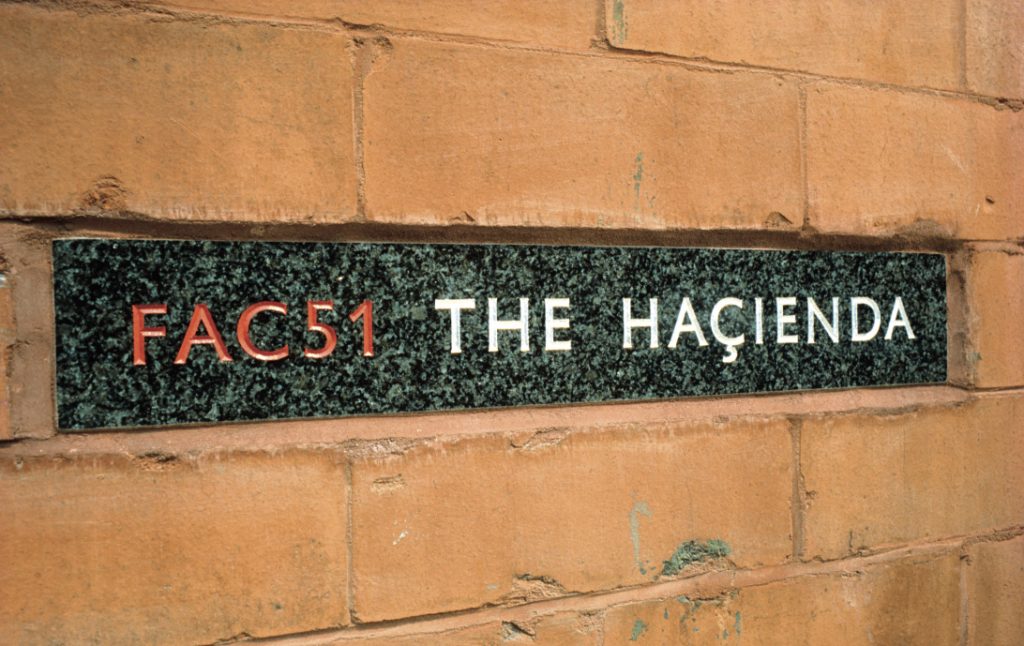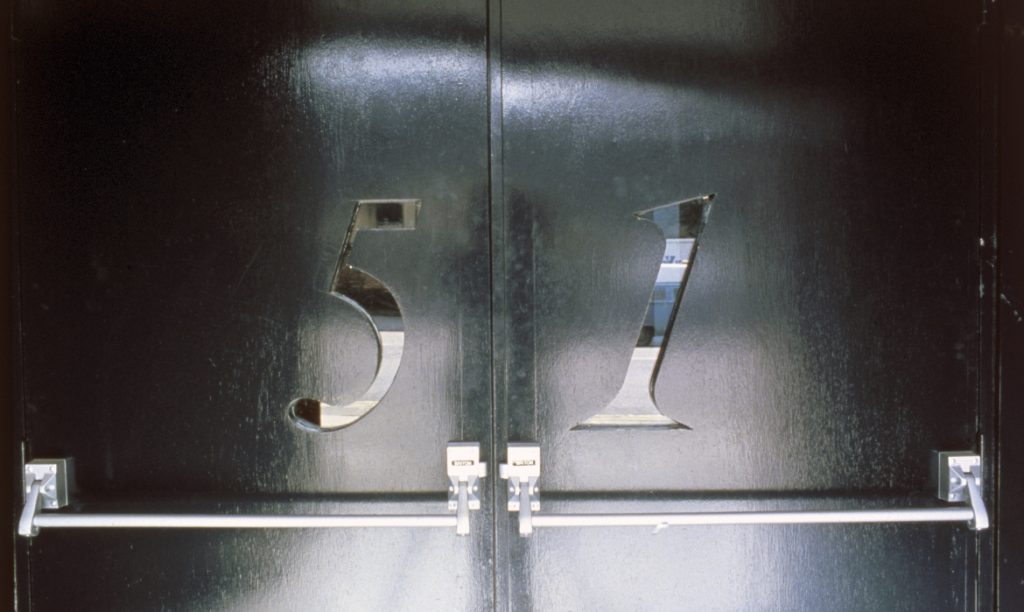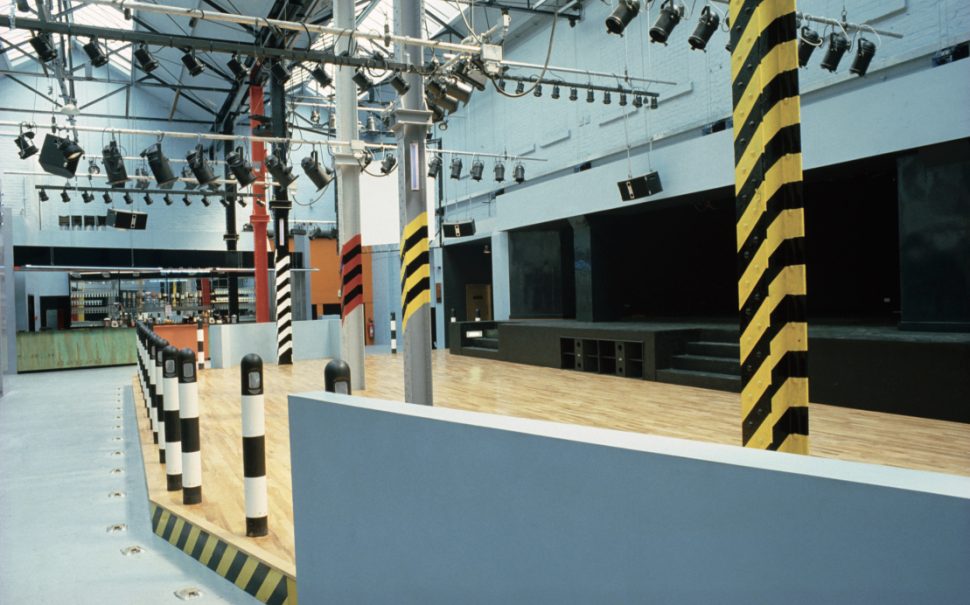Today marks the 40th anniversary that the legendary Manchester club The Hacienda opened its doors.
It was opened on Friday, May 21st 1982 under the Factory Records catalogue number ‘Fac 51’.
The Hacienda was one of the world’s most popular and influential nightclubs, bars and event spaces, which was opened up and co-owned by Factory Records and the members of New Order.
It was inspired by the hedonism of New York and still remains a huge part of Manchester’s heritage.
It was initially meant to be an event space for Factory Records to showcase the talent of their record label, and bands from other labels also played there.
The likes of New Order, Happy Mondays, The Smiths, The Stone Roses, Oasis and Madonna all graced the stage.

It was the birthplace of the Madchester scene in the late 1980s and the 1990s, and also fuelled the rise of acid house music and rave culture.
This was helped by local DJs like Mike Pickering, Graeme Park, Dave Haslam and Hewan Clarke.
Despite the issues surrounding knife violence and gangs, the legacy of the club still lives strong throughout the city.
Factory Records co-owner, Peter Saville, was asked to design the club after creating posters and album sleeves for Factory Records.
However, he recommended Ben Kelly because of his confidence in his abilities from their previous work together.

The visual representation of the club has been described by Saville to be the only club to look better in the daylight as it embodied the experimental flair of Factory Records.
Before The Hacienda, Kelly designed a rehearsal studio for the Sex Pistols and a shop front for Vivienne Westwood’s boutique store Sex.
Kelly spoke to Mancunian Matters about what The Hacienda meant to him.
He said: “It was a big project, a big piece of work for an unusual group of clients, and it has had a huge impact on my career on everything that’s happened since really one way or another.
“What was amazing and fantastic for me was in many respects they were the perfect clients because they were independent and promoted the notion of creativity.
“I think originally when they found the premises, this huge cavernous space which ended up being described as cathedral-like, Tony said every city needed its cathedral, not necessarily for conventional religion but there was different religion going on in that place.
“It gave a lot of inspiration to young people to go off and do their own thing, it was like a glorified village hall.
“I often refer to Factory Records as unpaid social workers.
“They gave to people, gave attitude and gave artwork to so many different people, they’re almost kind of providing a service, that service was about attitude and about doing it yourself, it was an approach to how you live.”
The designer then spoke about the permanence of the club.
He said: “The Hacienda and the longevity of that with the 40th anniversary of the club is an extraordinary thing.
“The fact that there is an event on in the car park of the original building on Saturday speaks for itself really, Hacienda Classical exists, books are still being written and TV documentaries are still being made.
“It was a club but it was a venue, for dancing, it was a bar, it was many different things, and that’s why I think that’s one reason why it has its longevity and success.”
To celebrate the anniversary, there will be a rave in the carpark of the Hacienda flats, where the club’s dance floor once stood.
The charity event will see DJs return to the venue who helped the club develop its legendary status.
Proceeds from the event will be donated to The Christie hospital charity and The Legacy of War Foundation.
This is also available to watch here:
Kelly then spoke about the process of working with Factory Records.
He said: “A lot of trust was involved for sure, with Dry 201 a lot of lessons had been learnt from The Hacienda as there was more of a business model involved, whereas The Hacienda was to just do it, which is a great philosophy.
“I think a lot of that has been lost today.
“Then with the headquarters building, a lot of water had passed under the bridge and the financial situation wasn’t what it might’ve been and it didn’t last too long.
“But I think the whole thing had run it cause anyway.
“On the whole, those three projects are kind of milestones for me and will never be repeated.”
Finally, Kelly spoke about the legacy of the building.
He said: “The sadness was that Tony Wilson, Rob Gretton and other people are no longer with us, but The Hacienda has its own life.
“There was a sense of community which fed out into Manchester’s attitude and some of that still remains today.
“It’s full of contradictions, it was unique and it resonated with people.
“My strapline to all of that is that The Hacienda never dies, it just doesn’t.
“There’s hardly a day which has gone by since it’s opened that something hadn’t come up for me, it just doesn’t stop and I don’t think it will stop.”
All photos used are credited to Ben Kelly Design (BKD)




